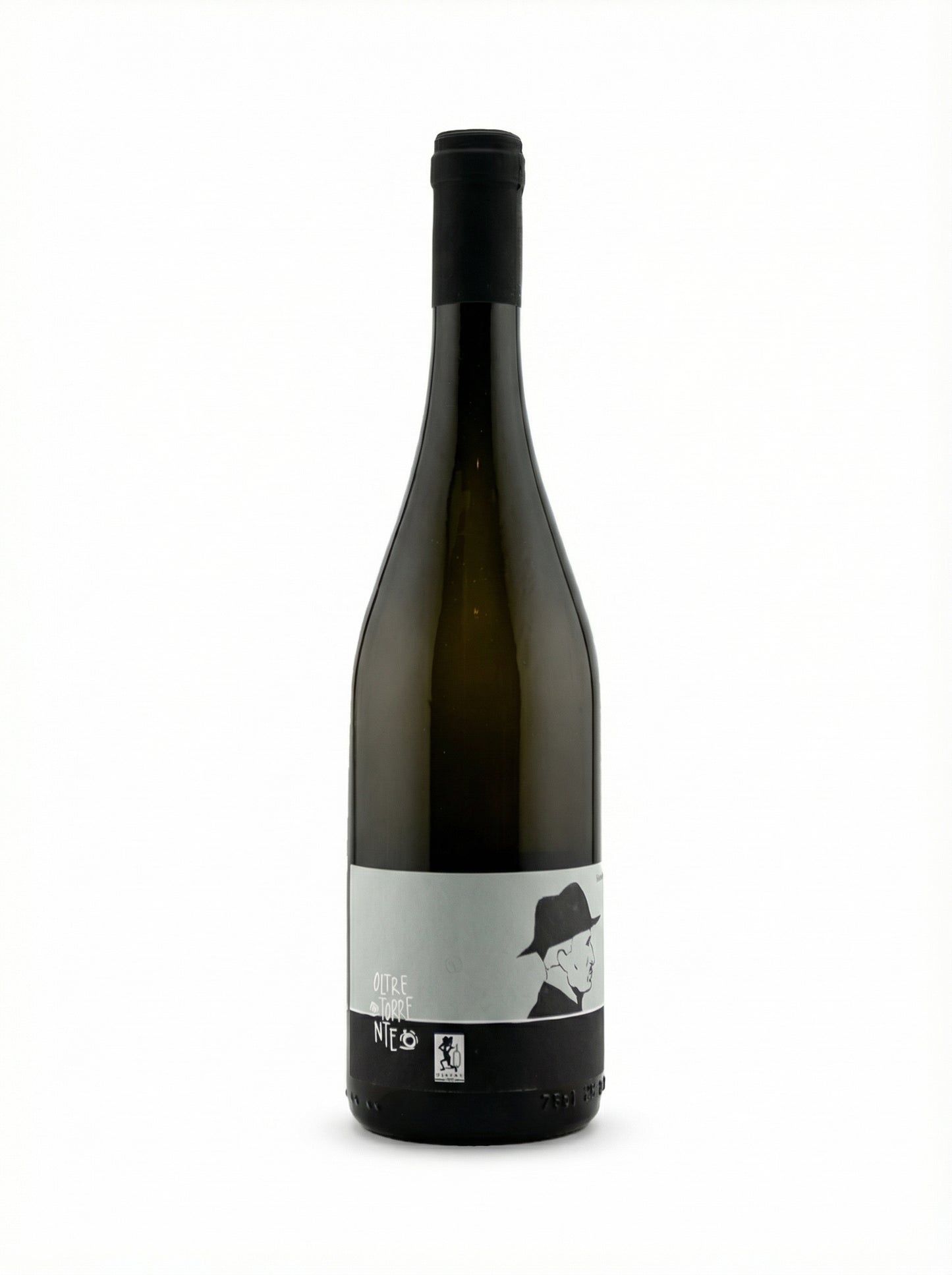2023 Oltretorrente Bianco Colli Tortonesi
The wine is produced in the Colli Tortonesi region of southern Piedmont—an area with a rich local viticultural history that extends from parcels planted between 1959 and 1999 (including some 100‐year-old vines) to newer vineyards. Depending on the style, it is made either exclusively from Timorasso grapes grown on calcareo-limosi soils or as a field blend comprised essentially of equal parts Cortese, Favorita, and Timorasso with trace amounts of Moscato Bianco and Giallo. In some cases the Timorasso is harvested and vinified separately before being incorporated into the blend.
For all styles, the grapes are whole-cluster pressed without destemming. Fermentation occurs spontaneously in temperature-controlled concrete and stainless steel vats—with malolactic fermentation undertaken—and is followed by aging on the lees. In most instances, the wine is aged for six months, though wines made solely from Timorasso may be aged for 10 months to preserve their inherent minerality and freshness. Harvest typically takes place between September 11–17 at yields around 6,200 kg/hectare (approximately 43 hl/ha), and production has included limited quantities such as 8,000 bottles and 1,800 magnums in a given vintage.
This production approach, employed by winemakers Chiara Penati and Michele Conoscente from their organic vineyard in the area near Paderna and Tortona, reflects a commitment to traditional, terroir-driven practices and precise winemaking techniques.
Regular price
$25.00
Regular price
Sale price
$25.00
Specs
Farming
Harvest
Timorasso is vinified separately, while Cortese, Favorita, Moscato Bianco, and Moscato Giallo are blended and processed together at harvest.
Fermentation
Whole clusters are pressed without destemming—using pneumatic or traditional presses—and no deliberate skin maceration is performed (with one variant undergoing 8 months of skin contact in stainless steel). Fermentation is spontaneous in concrete and stainless steel vats with temperature control; malolactic fermentation is applied in some treatments but not universally.
Aging
Variants are matured either on the lees for 6 months (with one treatment receiving light filtration) or, in one case, for 10 months in cement tanks, with an option of aging on the skins as noted.


